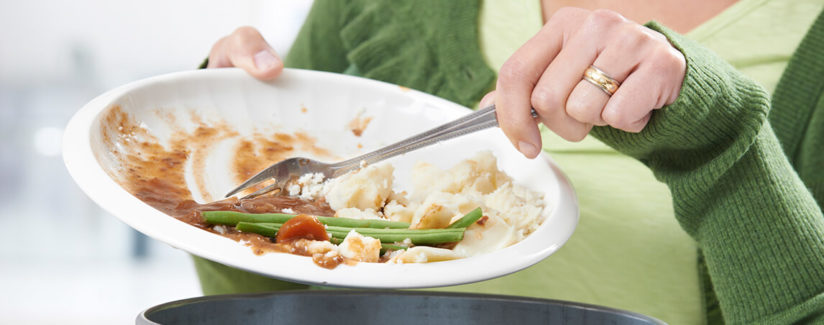
Tips for Reducing Food Waste at Home
A great deal of food waste happens at the consumption stage of the food production process, especially in developed countries. Household food loss and waste occurs when food is thrown away after it is purchased, or even prepared, because of its perishability. Much of the foods we buy – fruits and vegetables, roots and tubers, fish and seafood, dairy, meat and cereals – are easily damaged and have short shelf lives.
To find out how to reduce household food waste, we reached out to Robyn Barefoot M.Sc., and registered dietitian, to provide us with some tips and tricks to minimize food waste at home – which also means saving money and helping the planet.
I throw out a lot of food because it goes bad before I can use it. What are some tips to help reduce household food waste?
Barefoot: “My favourite tip is to plan ahead and shop often! Planning meals in advance can help utilize the food purchased. Using tools such as websites, paper and pen, calendars or even something as simple as a chalkboard can help to make meal planning possible. Making a shopping list and sticking to it goes hand in hand and can help to avoid unnecessary purchases that may not get eaten. Another personal favourite is shopping at bulk food stores. This can help reduce waste of dry storage items such as spices, dry pasta and crackers, grabbing only how much you’ll need … while saving money too!”
“As someone who lives alone, I grocery shop at least 3-4 times per week, only grabbing small bits at a time. This keeps food waste at bay no doubt, but understandably can be challenging for those with large families. With a busy work and home life, many clients I speak with shop every two weeks or even once a month. In this case your freezer is your best friend (seriously) … as is a clean and organized fridge.”
Tip for Fresh Fruits and Vegetables
Barefoot: “Cut up vegetables and fruit only as you wish to eat them. Once oxygen is exposed to produce, its shelf life plummets. Surface area is also a big one – the more you chop something into smaller pieces, the quicker it will go bad. Cut too much? Pop fresh fruit and vegetables in the freezer and store for up to 6 months. Remember; keep your storage spaces neat and tidy to ensure you know what you have on hand.”
What are ways I can better store my food to prevent wasting it?
Barefoot: “Keeping food in the fridge can extend its shelf life. I like to keep tomatoes, avocados, apples and even bananas (nothing better than a bite out of a chilled banana in the morning) in the fridge even though they’re perfectly ok to stay on the counter. This gives me a few more days out of them.”
Tip for Bread
Barefoot: “Bread is a staple I purchase but after day two, it goes directly into the freezer. Keeping bread in the fridge will delay the mould but also stales the bread due to two compounds called amylose and amylopectin found in wheat. The structures of the grains change when refrigerated and can leave you with a not so nice product – yet still safe to eat. If you wind up with stale bread, throw it in the toaster and you won’t notice the difference!
Tip for Meat
Barefoot: “Another favourite of mine is to cook meats, especially poultry prior to freezing. This allows me to grab the protein straight from the freezer, throw into a dish and quickly microwave or even eat cold as I need. I find freezing meats raw leads to a greater potential of freezer burn and food waste as the thawing, cooking, chilling and reheating process is much more burdensome than being prepared and ready to go. Hooray for being prepared and reducing food waste!”
Do you have suggestions for using food that is about to go bad?
Barefoot: “Roasted, grilled, sautéed or soup’ed! Vegetables that start to wilt are perfect for cooking because you can’t notice the difference in taste or texture. I love tossing week old spinach and herbs such as parsley and basil into soups and stews and even lasagne once they’re not as fresh looking. While produce is good for this, be careful with cheeses and meat products as the best before date is crucial. If I notice a best before date on a packaged food is approaching, again I pop it into the freezer and can still use it in a couple weeks down the road (hint: shredded cheese is perfect for this). Many foods can be kept in the freezer for up to 6 months. You’d be surprised to know I was eating leftover turkey soup from Thanksgiving at Christmas time … saving money and the planet tastes pretty good to me!”
Reducing food waste starts with planning meals in advance and smart shopping at the store. Utilize your refrigerator and freezer to extend the life of fresh foods and keep food storage areas organized so you know what you have on hand. Using as much as possible of the foods you purchase helps to save money and helps the environment.


























